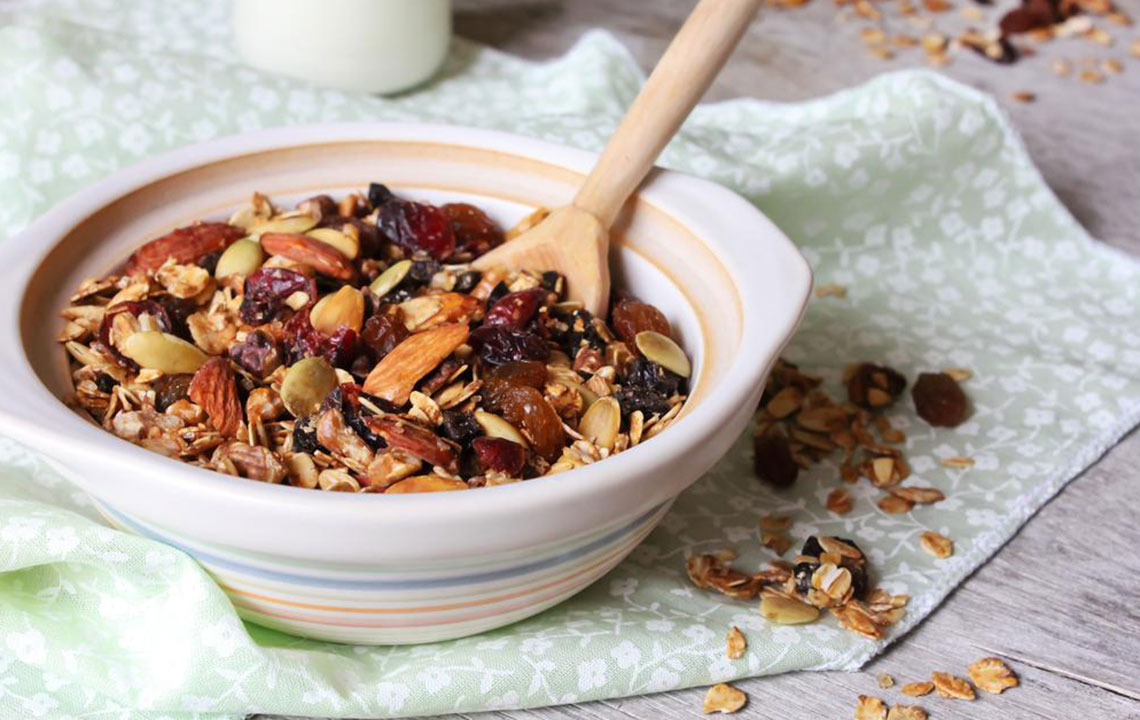Food for Cholesterol – What to Eat and What to Avoid
Increased cholesterol levels in the blood can cause many problems for the heart. It can block the arteries and can lead to cardiac arrest. Following a healthy diet is a helpful way of reducing cholesterol levels. There are different foods you need to consume to reduce cholesterol levels, as well as those you should avoid. Given below are the list of good and bad food for cholesterol.
Good and Bad Cholesterol
Good cholesterol is HDL cholesterol.

LDL cholesterol is bad cholesterol. It causes plaque and blocks arteries, leading to a heart attack. Food that increases LDL cholesterol should be avoided or at least consumed less.
Food to Avoid
Consuming certain food for cholesterol patients that leads to an increase in LDL cholesterol levels and should be avoided. Some of them are
- Saturated Fats
This is a type of fat that leads to an increase in LDL cholesterol and is dangerously bad for health. Food items containing saturated fats must be completely avoided or eaten in moderation. Foods full of saturated fat include red meat such as beef, pork, lamb, and poultry meat with skin. Lard and dairy products like butter, cream, cheese, and cream should also be avoided.
- Trans Fat
Essentially, trans fats are vegetable oils that have solidified. They are unhealthy and must be avoided by those with high cholesterol levels. Food having high trans fat content include deep-fried foods, packaged snacks, pastries, cookies, biscuits, and doughnuts.
- Salt
Salt increases blood pressure and contributes to heart problems, which is why excess salt must be avoided. Junk food and canned goods are rich in salt, and they must be taken in moderation.
- Sugar
Consuming excess sugar not only increases blood glucose levels but also contributes to weight gain. It can cause severe health problems for those with high cholesterol levels. Sugary food items such as sweets, and cakes must be avoided. Apart from sugar, use of fructose corn syrup in daily meals must be avoided. Ice cream, carbonated drinks, candies, and chocolate can have sugar or corn syrup content and must be avoided. Fresh-cut fruits, however, can be consumed.
- Junk Food
Although they taste delicious, regularly eating junk food increases bad cholesterol. Such foods have excess amounts of salt and sugar, which are detrimental for those with high colesterol. Fried food like French fries or fritters, fast food such as burgers and pizza, and processed foods and meat, and most desserts need to be avoided. You must completely cut-off junk food for cholesterol levels to normalize, or at least eat them in moderation.
Foods to Consume
Some types of food are good for the body and can increase HDL or good cholesterol levels. They include
- Fibers
Fiber helps to bind cholesterol and remove it from the body. It also aids in digestion and controlling blood sugar levels. You need to incorporate more fiber-rich foods in your diet for lowering cholesterol levels, such as- Nuts, legumes, beans, and seeds
- Fruit skins
- Fatty fish like salmon, sardines, and trout
- Blueberries, psyllium, brussels sprouts, and oats
- Natural oils like those made of olive, sunflower, and canola
- Herbs and Spices
Using herbs and spices can make up for not using excess salt. They help make food taste better. Herbs and spices help in lowering cholesterol levels. Garlic is especially well known in reducing LDL cholesterol when eaten raw. Two to three pods of garlic eaten raw daily can reduce high cholesterol levels. Turmeric, sage, oregano, ginger, mint, cilantro, clove, cinnamon, and thyme are some of the herbs and spices that can be added to food to help maintain cholesterol levels. - Eggs
Including eggs in your diet can help in increasing good cholesterol levels. Eating one to three whole eggs daily can protect the heart and provide adequate nutrients for the body. - Fruits and Vegetables
Fruits and vegetables contain several vital nutrients and also helpful in reducing bad cholesterol. The best fruits and vegetables to consume are- Cabbage
- Avocado
- Grapes
- Carrots
- Soybeans
- Onions
- Tomatoes
- Bell peppers
- Artichokes
- Peas
- Apples
- Pears
- Citrus fruits
- Whole Grains
Whole grains like barley, oats, quinoa, and whole wheat are good for overall health. Not only are they good for the heart but are also helpful in reducing weight. - Pasture-raised Steak
Steak from pasture-raised cows is rich in proteins, minerals, and omega-3 fatty acids. While there is some controversy about the inclusion of red meat in food for cholesterol reduction, pasture-raised steak is suitable for those with high cholesterol levels. - Low-fat Milk
Foods that are made from low-fat milk are normally safe to consume for those who have high cholesterol.
Cholesterol levels in the blood can be controlled through a proper diet. But apart from this, a stress-free lifestyle and regular exercise are also vital to reduce cholesterol.